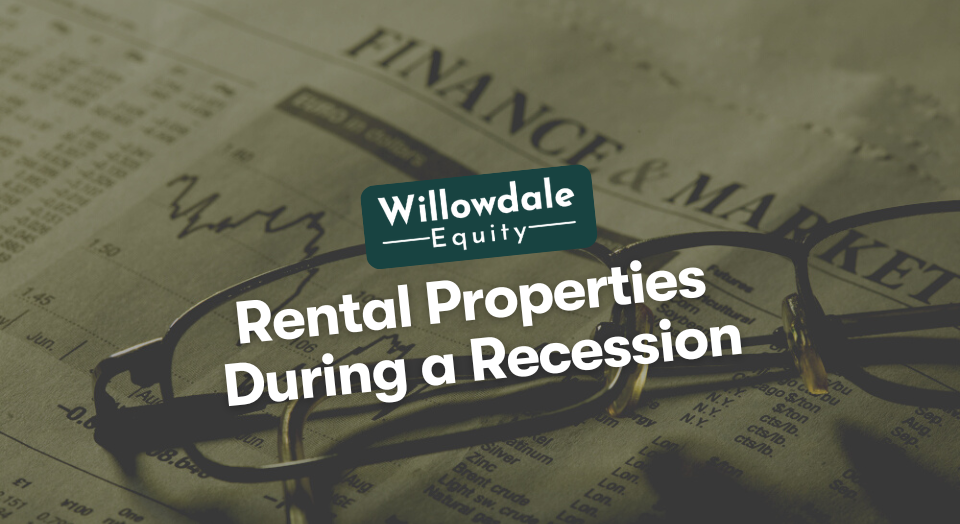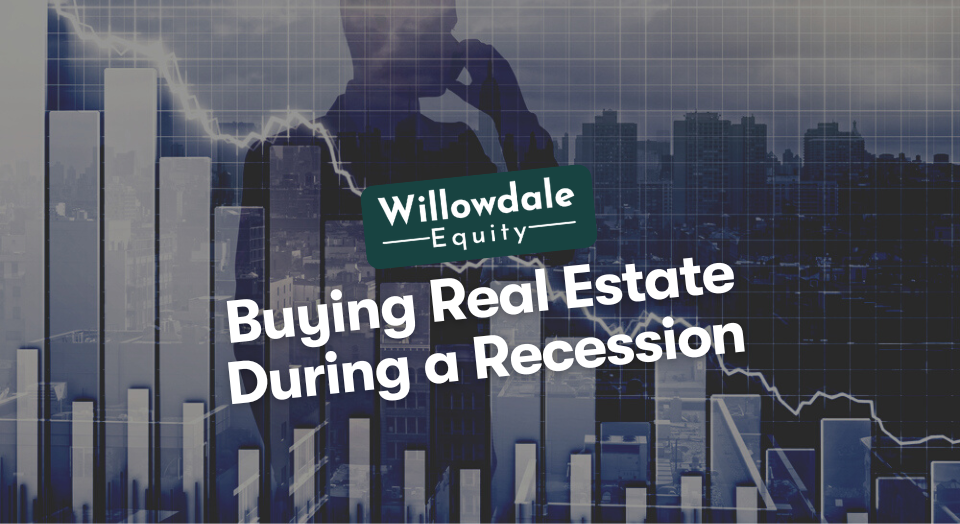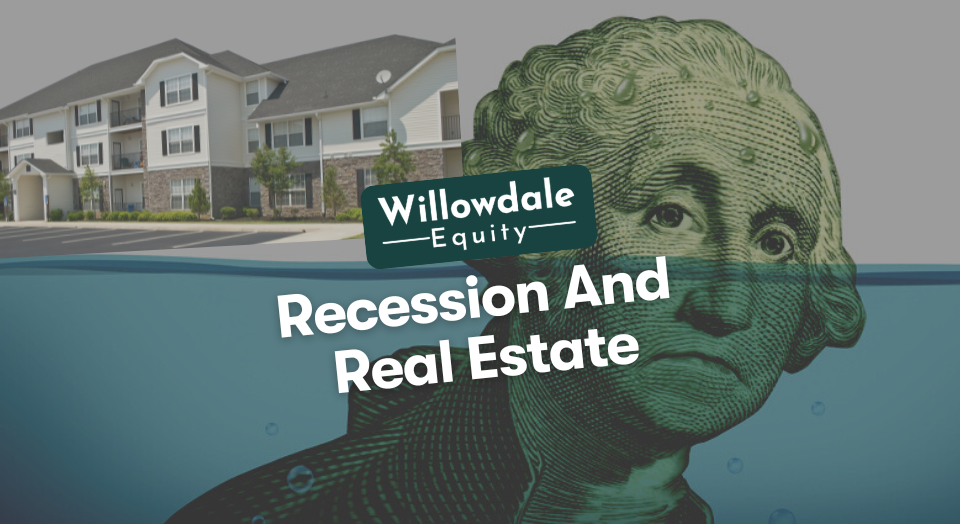
Is Rental Property a Good Investment in a Recession?
This article is part of our guide on buying real estate during a recession, available here.
Your success in investing depends largely on economics rather than luck. Of course, we can never be sure of the economy’s future. However, based on the quality of your choices, you can hedge your stakes to win or lose.
An economic downturn is a significant reason investments don’t provide the expected return or even a loss. So what can investors do to avoid it? Investing in rental properties is one option.
The good news is that the values of rental real estate have continued to rise over several decades, even though many recessions have occurred during this period. They have sometimes gone up during the recession itself.
What does that mean for property investors? Also, how can you profit from investments in rental properties? In this article, we look to provide the answers.
Key Takeaways
-
Real estate is a great asset to own when the economy is in freefall. A rental property typically acts as a natural hedge in a volatile market.
-
People lose their jobs, earnings, and sometimes their homes when a great recession happens. During such periods, it can be reasonably simple to find tenants. A primary need that is always in demand is housing. We can forgo getting a new phone or car, but choosing to live on the streets is the last stop.
-
Ideally, it would help if you were searching for rental property investments in locations with strong income levels, diversified employment, and strong population migration. This drives future demand and strong stability in rental pricing.
What are the Signs of a Recession?
The U.S. economy did not recover fully even a couple of years after the 2008 recession had ended, raising fears that the nation was about to face yet another recession.
Recessions are often defined as six months of contraction or two months of consecutive negative GDP. Although most experts have stated that they do not believe the economy is in a recession, a growing number anticipate one to start in 2024.
According to the National Bureau of Economic Research (NBER), recessions are “a significant fall in economic operation dispersed across the economy and lasts more than a couple of months.”
The committee uses employment trends as a significant indicator when determining recessions. Numerous other data points are also evaluated, such as measures of industrial production, income, retail sales, inflation-adjusted expenditure, and employment. It gives a lot of weight to employment and a measure of inflation-adjusted earnings that doesn’t include government benefits like social security.
But the NBER usually holds off until a recession has already begun, sometimes for up to a year. According to economists, the most historically accurate indicator of a downturn is a half-point increase in the unemployment rate over several months.
Now that you understand the signs of a recession to look for to predict an economic downturn, we can move on to investigating if a rental property is a good investment in a recession.
Is Rental Property a Good Investment in a Recession?

Real estate is a great asset to own when the economy is in freefall. A rental property typically acts as a natural hedge in a volatile market. Primarily because many people that sell their homes or properties during an economic downturn or recession need to sell their property.
These people then look for rental properties to live in, as renting lowers their cost of living compared to home ownership. This effectively increases apartment demand. If an economic downturn is coupled with an early decline in real estate market values, which is typically the case, there is little chance left for you to buy residential real estate at a discount.
The following are reasons why rental property is an excellent real estate investment in a recession.
Housing Is a Basic Need
People lose their jobs, earnings, and sometimes their homes when a great recession happens. During such periods, it can be reasonably simple to find tenants. A primary need that is always in demand is housing. We can forgo getting a new phone or car, but choosing to live on the streets is the last stop.
To maximize your rental properties performance, it’s essential to maintain strong property management and buy rental properties in strong locations.
Multifamily and Rental Property Are Stronger than Commercial Real Estate
You might think that commercial properties like office and retail are more dependable than a multifamily or residential rental properties. Since the eighteenth century, certain businesses have endured multiple economic downturns, proving they have a track record of standing the test of time.
But the coronavirus pandemic showed us that housing was the most resilient, and assets like retail and office were faced with growing vacancies as people went remote, which lowered overall demand.
On the other hand, residential rentals are not as impacted by local or global business economics. Regardless of what is going on in the world, people still need a place to live.
Private Real Estate Investments Are More Stable Than Investing In the Stock Market
Those who invested in residential real estate didn’t suffer as significant a loss as investors in the stock market during the Great Depression. After the Great Recession, single-family rental properties had positive values in the real estate market.
Privately owned real estate investments are not traded daily like stocks. As a result, they offer stability when stock prices are erratic.
Purchasing investment properties is unquestionably worthwhile, with numerous financial advantages for rental property owners. However, all real estate investors can make money during a recession, not just rental property owners. The following explains how it can be done.
How to Make Money in Real Estate During a Recession
Here are three valuable pointers to consider if you’re considering real estate investments during a recession.
1.) Consider the Location

When selecting real estate investments, location is always vital. If you’re looking at rental units, familiarize yourself with the neighborhood and assess the market as a whole. Ideally, it would help if you were searching for rental property investments in locations with strong income levels, diversified employment, and strong population migration. This drives future demand and strong stability in rental pricing.
Pay attention to the trends. Are people searching for urban residences or rural ones?
For instance, in 2020, we noticed a considerable migration into rural and suburban settings due to increased remote work and the desire for additional space.
2.) Think About Cash Flow

Keeping cash flow as your principal focus is another tip to help make the best real estate investing decisions. Imagine that you wish to add rental real estate to your holdings while a recession is ongoing. In such a case, look into properties with stable cash flow.
These properties still generate strong cash flow after subtracting monthly operational expenses and mortgage payments. Such rental units will reduce the risk of even a recession.
Related Read: Recession Proof Investments
3.) Compare Financing Options

Pay special attention to interest rates and lending options in the mortgage and housing industry if you need to fund an investment property. In the early stages of a recession, rates may rise and gradually decline when the Federal Reserve revises its monetary policy to promote borrowing and spending. The total cost of the loan can differ significantly depending on when you borrow.
Now that you know how to make money in real estate during a recession, you may want to know what happened to rentals during the great recession of 2008 so you know what to expect when a recession hits next.
What Happened to Rentals During the Great Recession of 2008?
Only the Great Depression has a worse record in American history than the Great Recession. It also serves as a beautiful case study for a “worst-case event” for real estate investors because it mostly revolves around overvalued real estate.
From a high of $257,400 during the first quarter of 2007 to a low of $208,400 during the first quarter of 2009, median real estate prices declined. The value of that has decreased by 19%, while in many places, property values have decreased by 30, 40, or even 50% or more. Remember that the above stats are quarterly data that balance some extremes.
U.S. median rentals, meanwhile, did not decrease at all. However, they did flatten during the period after the Great Recession and the recovery that followed.
The percentage of rental properties without tenants increased from 9.6% in the 4th quarter to 11.1% in the 3rd quarter of 2009. However, that is only an increase of 1.5 percentage points, which is hardly alarming.
Frequently Asked Questions about Owning Rental Property During a Recession
Compared to most assets, rental properties are more resilient to economic downturns. However, they still aren’t entirely immune to economic downturns. You can lock in a significantly reduced long-term cost of housing if you can purchase a property during an economic downturn and take out a fixed-rate mortgage to benefit from the low mortgage rates and lower property costs.
Real estate investments, especially investments in rental properties like larger multifamily assets, provide stable cash flow to investors during a recession.
Real Estate Investing During Recession - Conclusion
Nobody likes to struggle during a recession. It disrupts our finances and has the potential to change our life drastically. If you hold rental property, this does not necessarily need to be the case. A recession, however, can potentially put you in a place where you could benefit from turmoil years later.
Never forget that by making wise real estate investing, you can tilt the inopportune circumstances in your favor, irrespective of the economy’s condition.
Join the Investors Club at Willowdale Equity to learn more about private investing in value-add multifamily during a recession. Also, how you can benefit from the steady cash flow, appreciation, and tax advantages that multifamily offers.
Sources:
- Sound Dollar, “What Is the Relationship Between Recessions and Unemployment?”
- Smart Asset, “How to Invest in Real Estate During a Recession“
Interested In Learning More About PASSIVE Real Estate Investing In Multifamily Properties?
Get Access to the FREE 5 Day PASSIVE Real Estate Investing Crash Course.
In this video crash course, you’ll learn everything you need to know from A to Z
about passive investing in multifamily real estate.
We’ll cover topics like earned income vs passive income, the tax advantages, why multifamily, inflation, how syndications work, and much much more!




